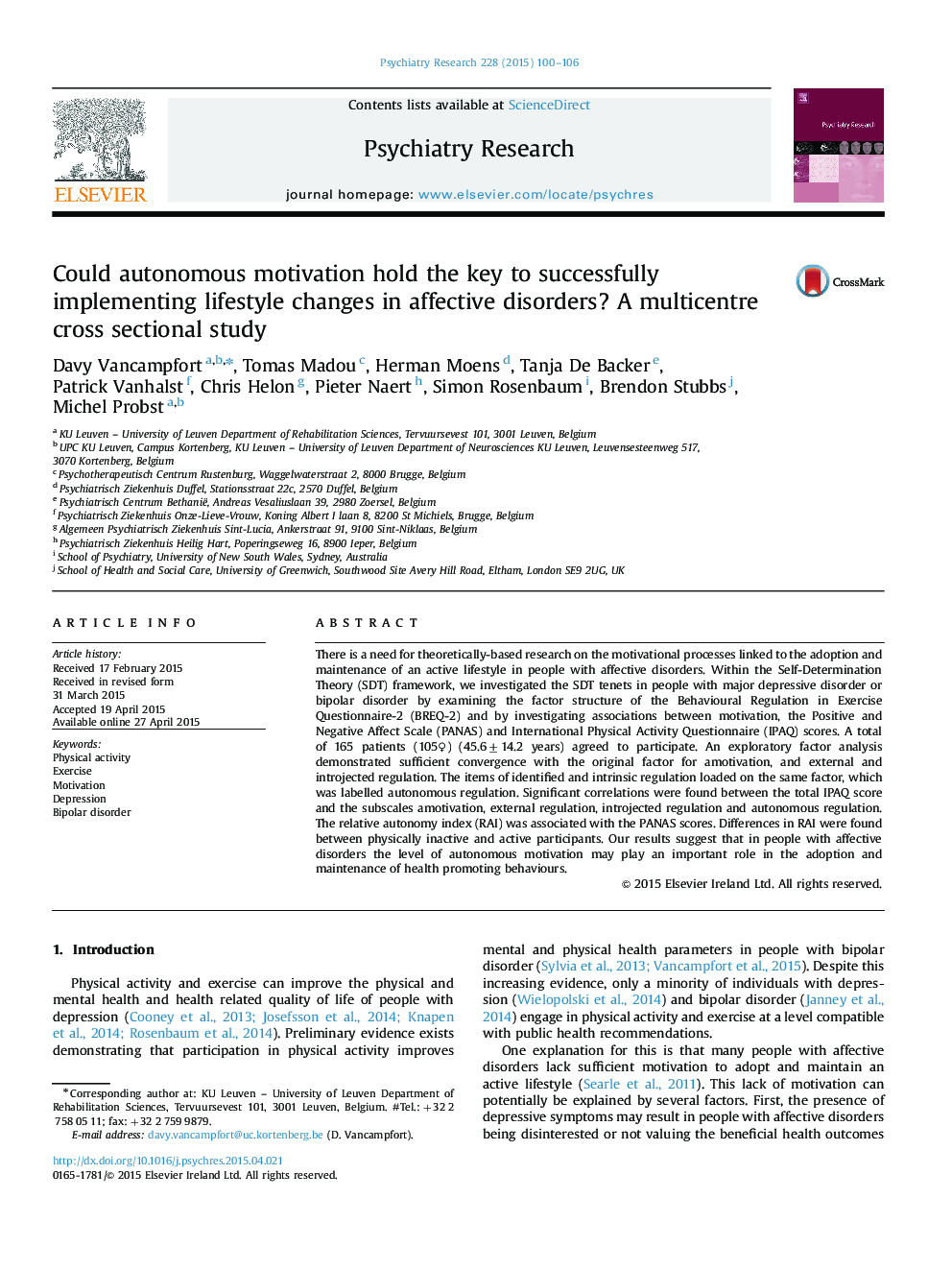| Article ID | Journal | Published Year | Pages | File Type |
|---|---|---|---|---|
| 332911 | Psychiatry Research | 2015 | 7 Pages |
•Autonomy is important in activity behaviour of those with affective disorders.•Walking can be an important first step to become active.•Lower educated patients show more amotivation than higher educated patients.
There is a need for theoretically-based research on the motivational processes linked to the adoption and maintenance of an active lifestyle in people with affective disorders. Within the Self-Determination Theory (SDT) framework, we investigated the SDT tenets in people with major depressive disorder or bipolar disorder by examining the factor structure of the Behavioural Regulation in Exercise Questionnaire-2 (BREQ-2) and by investigating associations between motivation, the Positive and Negative Affect Scale (PANAS) and International Physical Activity Questionnaire (IPAQ) scores. A total of 165 patients (105♀) (45.6±14.2 years) agreed to participate. An exploratory factor analysis demonstrated sufficient convergence with the original factor for amotivation, and external and introjected regulation. The items of identified and intrinsic regulation loaded on the same factor, which was labelled autonomous regulation. Significant correlations were found between the total IPAQ score and the subscales amotivation, external regulation, introjected regulation and autonomous regulation. The relative autonomy index (RAI) was associated with the PANAS scores. Differences in RAI were found between physically inactive and active participants. Our results suggest that in people with affective disorders the level of autonomous motivation may play an important role in the adoption and maintenance of health promoting behaviours.
